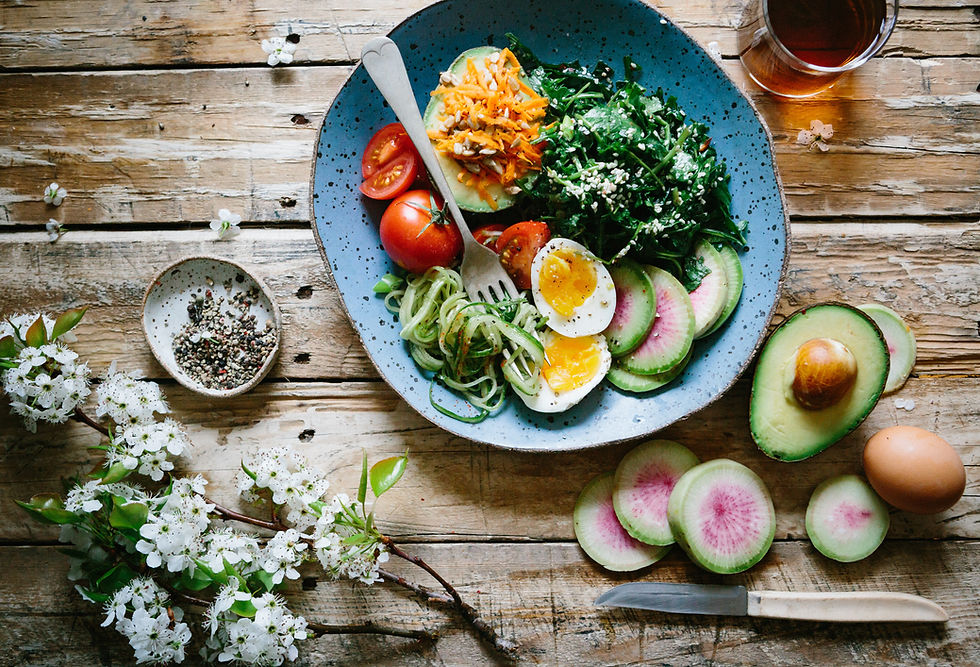This article appeared on the SumoSalad blog in February 2020. The original can be found here.
Missed your chance for a new year reset? It’s not too late to get back on track and make a healthy change.
So often festive season feasting extends to summer party season and then suddenly, just like that, it’s February. Oops. But if those new year, new you plans didn’t quite work out – it’s not too late to get on track and make 2020 your healthiest year yet!
If you’ve been through a rocky patch with your diet, the first thing to remember is not to stress. “The most important thing to realise is that beating yourself up for overindulging is the worst thing you can do,” says nutritionist Ashleigh James. Be grateful for the abundance of the season, then move on.
Focus on a few positive healthy changes you can make to add some more nourishment into your diet. “Turn your attention to eating lighter and focus on eating more fresh fruit and vegetables,” Ashleigh advises. “Your body will recover. Try smoothies and juices in the morning – add ingredients like lemon, ginger, kale, carrots, celery and apples – they’re full of antioxidants, nutrients and water. This will help if you’re feeling bloated and low on energy.”
A simple shopping trip can also be a game-changer. “If you have a farmers’ market near you, go and load up on fresh produce or try your local grocer,” says Ashleigh. “Make a plan for a week’s worth of healthy meals and stock up on lots of healthy fruits and vegetables. Start meal prepping so you know that for at least the next week you will have healthy meals on hand.”
Plus, don’t forget your most basic nutrition need: water. “Salt and sugar (and alcohol) dehydrates you,” points out Ashleigh. “Water will be your best friend after a period of indulgence, since it rehydrates you, flushes out toxins and fills you up.” That’s a win, win, win situation.
Do you need to cut out sugar?
Sugar is one of the biggest poor diet culprits. Our intake can easily sneak up over the holiday period. Sure, it’s in sweets and treats, but also in processed foods and – yes – those colourful cocktails.
The good news is, going cold turkey on sugar isn’t necessarily the best approach. In fact, Ashleigh says you should try to avoid that all or nothing mentality entirely. “I would just remove any trigger or junk foods from your environment for a little while,” she says. “Research shows that trying to deny yourself something when you want it usually backfires. Turn your attention to filling your space with healthy meals and fresh produce. If you are still craving sweets, freeze some ripe fruit and make ‘nice cream’ out of it.” Yep, we can get on board with that.
Avoid portion distortion
After a period of actual feasting, it can be hard to figure out what a reasonable portion is. This guide can help. However, in short – it may be worth whipping out the kitchen scales to get a rough idea of what you should aim for.
“I know it’s not glamorous but weighing portions can be helpful when trying to recalibrate after a period of overdoing it,” advises Ashleigh. “Weigh your protein portions – once cooked they should be about 100-130g per portion. Cooked grains and starches should be about 170g. No need to weigh your non-starchy veg though.”
More veggies, more of the time
If you’re only going to make one change, then make it this: eat more veggies. Try to get them in every meal. “My number one tip is to transform your salads,” says Ashleigh. “Roast vegetables like eggplant, carrot and zucchini, and toss them through your salads. You can steam greens like beans and broccoli, throw them in with a leafy salad mix and add some legumes and you will up your veggie intake dramatically. Also, try swapping meat mince for lentils and mushrooms, and opt for vegetarian instead of meat dishes.”
Ultimately, if you missed the boat on the new year reset, it doesn’t mean you have to wait till the next year to get started. Any day is a good day to eat nourishing foods.


Comments